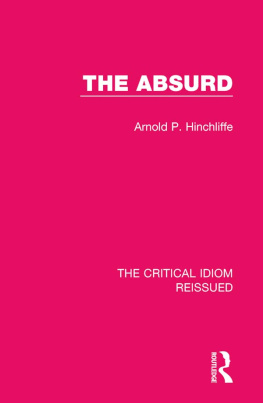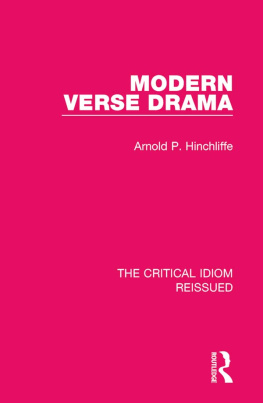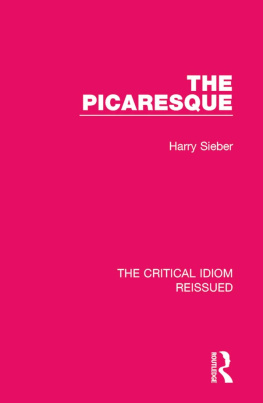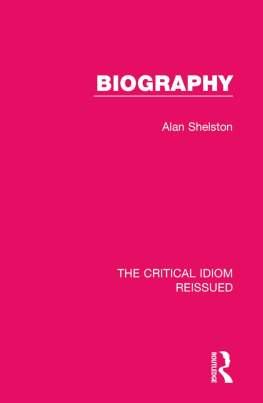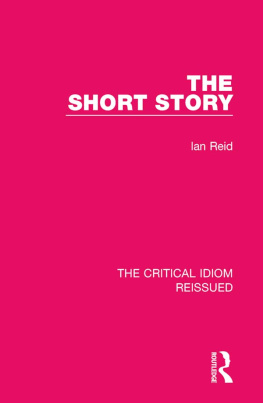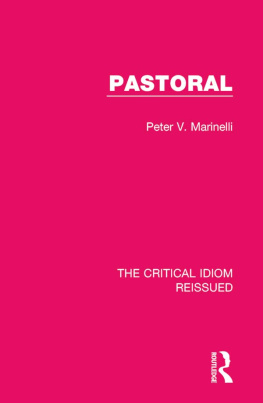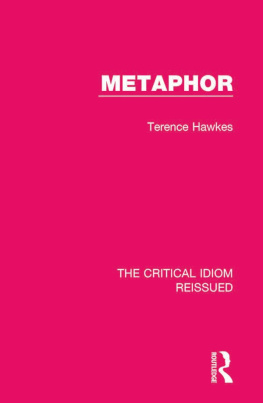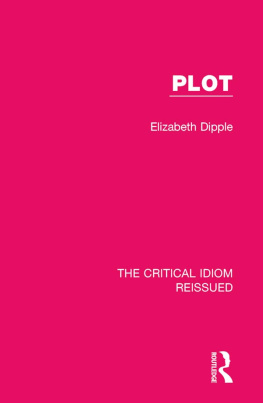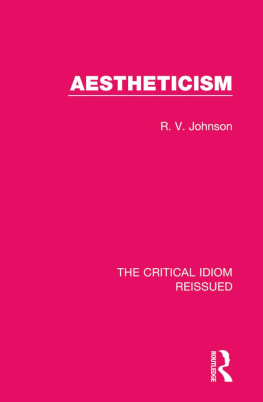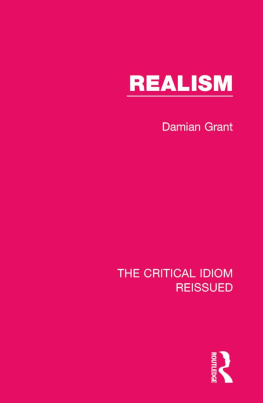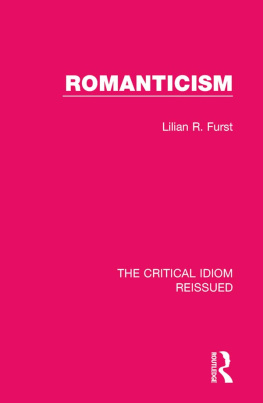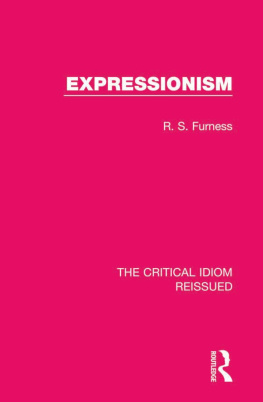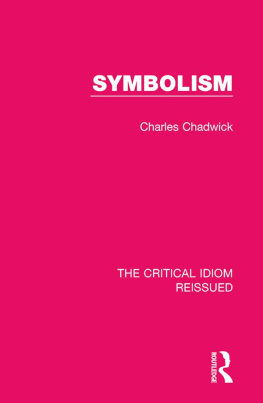Table of Contents
Guide
Print Page Numbers
THE CRITICAL IDIOM REISSUED
Volume 4
THE ABSURD
THE ABSURD
ARNOLD P. HINCHLIFFE
First published in 1969 by Methuen & Co Ltd
This edition first published in 2018
by Routledge
2 Park Square, Milton Park, Abingdon, Oxon OX14 4RN
and by Routledge
711 Third Avenue, New York, NY 10017
Routledge is an imprint of the Taylor & Francis Group, an informa business
1969 Arnold P. Hinchliffe
All rights reserved. No part of this book may be reprinted or reproduced or utilised in any form or by any electronic, mechanical, or other means, now known or hereafter invented, including photocopying and recording, or in any information storage or retrieval system, without permission in writing from the publishers.
Trademark notice: Product or corporate names may be trademarks or registered trademarks, and are used only for identification and explanation without intent to infringe.
British Library Cataloguing in Publication Data
A catalogue record for this book is available from the British Library
ISBN: 978-1-138-21971-7 (Set)
ISBN: 978-1-315-26975-7 (Set) (ebk)
ISBN: 978-1-138-24187-9 (Volume 4) (hbk)
ISBN: 978-1-315-11562-7 (Volume 4) (ebk)
Publishers Note
The publisher has gone to great lengths to ensure the quality of this reprint but points out that some imperfections in the original copies may be apparent.
Disclaimer
The publisher has made every effort to trace copyright holders and would welcome correspondence from those they have been unable to trace.
2017 Reprint
Acknowledgements
Extract from The Theatre and Its Double by Antonin Artaud, translated by Mary Caroline Richard reproduced with permission of Alma Classics Ltd.
Extract from The Messingkauf Dialogues by Bertolt Brecht, translated by John Willet, Bertolt Brecht, 1965, The Messingjauf Dialogues, Bloomsbury Methuen Drama, an imprint of Bloomsbury Publishing Plc.
Extract from The Theatre of Revolt by Robert Brustein used by permission of The Little Brown Book Company.
Extracts from Nausea by Jean Paul Sartre reprinted by permission of Pollinger Limited (www.pollingerltd.com) on behalf of the Estate of Jean Paul Sartre; also reprinted by permission of New Directions Publishing Corp. 1964 by New Directions Publishing Corp.
Extract from The Penguin Dictionary of Theatre by John Russell Taylor (Penguin Books, 1966) Copyright John Russell Taylor, 1966. Used by permission of Penguin Books Ltd.
The Absurd
Arnold P. Hinchliffe
First published 1969
by Methuen & Co Ltd 11 New Fetter Lane London EC4
1969 Arnold P. Hinchliffe
SBN 416 14530 2 Hardback
SBN 416 14540 X Paperback
This title is available in both hard and paperback editions. The paperback edition is sold subject to the condition that it shall not, by way of trade or otherwise, be lent, re-sold, hired out, or otherwise circulated without the publishers prior consent in any form of binding or cover other than that in which it is published and without a similar condition including this condition being imposed on the subsequent purchaser.
Distributed in the U.S.A.
by Barnes & Noble Inc.
Contents
This volume is one of a series of short studies, each dealing with a single key item, or a group of two or three key items, in our critical vocabulary. The purpose of the series differs from that served by the standard glossaries of literary terms. Many terms are adequately defined for the needs of students by the brief entries in these glossaries, and such terms will not be the subjects of studies in the present series. But there are other terms which cannot be made familiar by means of compact definitions. Students need to grow accustomed to them through simple and straightforward but reasonably full discussions of them. The purpose of this series is to provide such discussions.
Some of the terms in question refer to literary movements (e.g. Romanticism, Aestheticism, etc.), others to literary kinds (e.g. Comedy, Epic, etc.), and still others to stylistic features (e.g. Irony, The Conceit, etc.). Because of this diversity of subject-matter, no attempt has been made to impose a uniform pattern upon the studies. But all authors have tried to provide as full illustrative quotation as possible, to make reference whenever appropriate to more than one literature, and to compose their studies in such a way as to guide readers towards the short bibliographies in which they have made suggestions for further reading.
John D. Jump
University of Manchester
When it was first suggested to me that I should write a short account of The Absurd, my reaction was that Martin Esslin had already done it. It is his book which, more than anything else, has made the term and the philosophy widely available although restricted, unintentionally, to a small body of plays. These plays still strike me as the most significant literature of Absurdity but they have precedents and parallels elsewhere. Indeed, when the subject began to emerge as a document and not a slogan, the difficulty was to know where to begin and where to end.
I have taken it as axiomatic that for Absurdity to exist, God must be dead and that following this awareness there must be no attempt to substitute a transcendent Alter Ego. If, in the last analysis, writers produce as the great truth something which strikes us as very familiar such as love or manly fellowship those virtues now exist in a God-less context, and their achievement is the more difficult. The death of God and Transcendence safely eliminates most of the distinguished predecessors such as Kafka or Dostoevsky and limits the area of historical description to the last forty years. Even so, it proved impossible to cover, in the space available, either the novel or, more importantly, the philosophical background to the literature. But, as I have said, the play is by its form the best approach to

